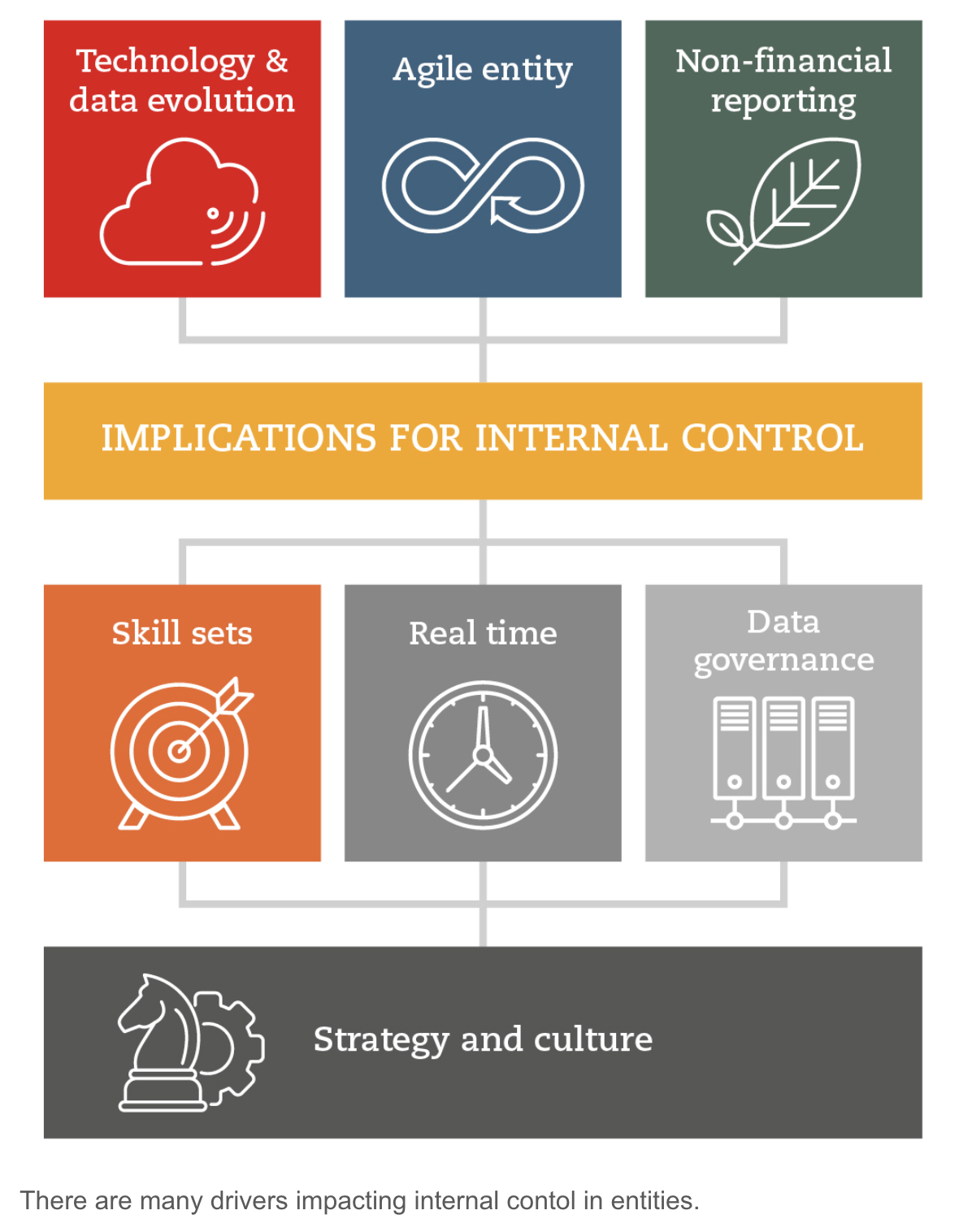Challenges ahead for internal control in organisations
The information was revealed in a new report titled Internal Control and the Transformation of Entities from the Association of Chartered Certified Accountants (ACCA), the Internal Audit Foundation, and the Institute of Management Accountants (IMA).
In the report, the three units worked with 2,000 of their global members to better understand what lies ahead for internal control, a core part of operational management that achieves important objectives, improves performance, and builds reputation.
 |
| The report shows various factors affecting the internal control and the transformation of entities |
According to the report, the lack of appropriately skilled staff was highlighted by 50 per cent of respondents as a challenge, and 41 per cent said technological advances are compromising existing internal controls.
Nearly a third (32 per cent) said a lack of executive emphasis on internal controls was also impacting the management of internal control.
Respondents were also asked about the purpose of internal control in an entity, with 88 per cent saying it minimises risk, 84 per cent cited prevention of fraud, and 77 per cent, the protection of assets.
The poll also shows that most respondents (80 per cent) agree or strongly agree that they need to apply their internal control framework to non-financial and ESG reporting.
Helen Brand, chief executive of ACCA said, "Internal control forms a core part of the activities of accountancy, finance, and internal audit professionals, assisting them to ensure that entities operate effectively and efficiently. Yet the business model is changing for many because of various and interconnected external pressures. Given this ongoing turbulence, it’s therefore essential that organisations recruit and retain the skilled people who can ensure that internal controls are agile and future-ready to support business transformation and growth."
Anthony J. Pugliese, IIA president and CEO of the Internal Audit Foundation Board of Trustees added, "Internal control demands appropriate prioritisation by management and a combination of people, processes, technology, and data – all underpinned by an unwavering commitment to trust and ethics. The route to this is through professional qualifications and continuing professional development, which our three organizations commit to delivering now and in the future."
The report also makes numerous recommendations and actions to improve internal control listed under headlines about the main drivers of change – such as strategy, transformation, people, processes, technology, and data.
Clive Webb, a co-author of the report and head of business insights at ACCA concluded, "Our recommendations will help accountants, finance professionals, and internal auditors navigate the way ahead as entities continuously evolve and transform. Our collective professions’ role in this change is essential, and we have every faith that their skills, knowledge, and dedication will ensure the future strength and integrity of internal control processes in an increasingly challenging world."
What the stars mean:
★ Poor ★ ★ Promising ★★★ Good ★★★★ Very good ★★★★★ Exceptional
 Tag:
Tag:
Related Contents
Latest News
More News
- A golden time to shine within ASEAN (February 19, 2026 | 20:22)
- Vietnam’s pivotal year for advancing sustainability (February 19, 2026 | 08:44)
- Strengthening the core role of industry and trade (February 19, 2026 | 08:35)
- Future orientations for healthcare improvements (February 19, 2026 | 08:29)
- Infrastructure orientations suitable for a new chapter (February 19, 2026 | 08:15)
- Innovation breakthroughs that can elevate the nation (February 19, 2026 | 08:08)
- ABB Robotics hosts SOMA Value Provider Conference in Vietnam (February 19, 2026 | 08:00)
- Entire financial sector steps firmly into a new spring (February 17, 2026 | 13:40)
- Digital security fundamental for better and faster decision-making (February 13, 2026 | 10:50)
- Aircraft makers urge out-the-box thinking (February 13, 2026 | 10:39)


















 Mobile Version
Mobile Version